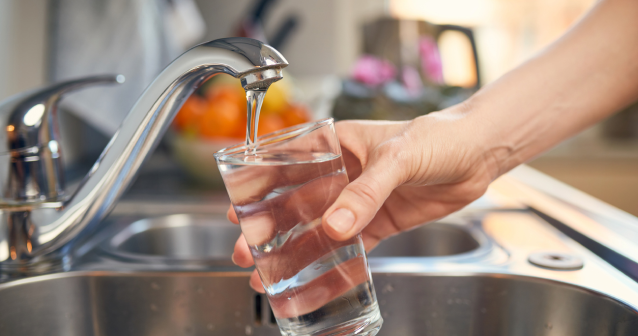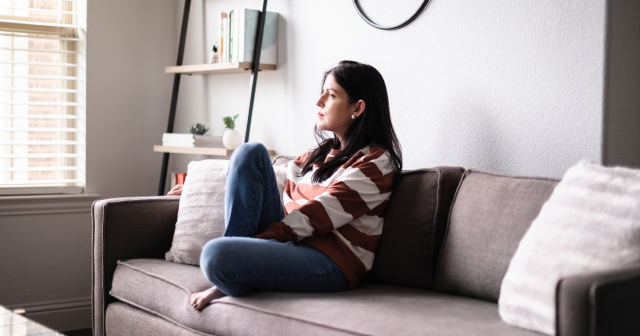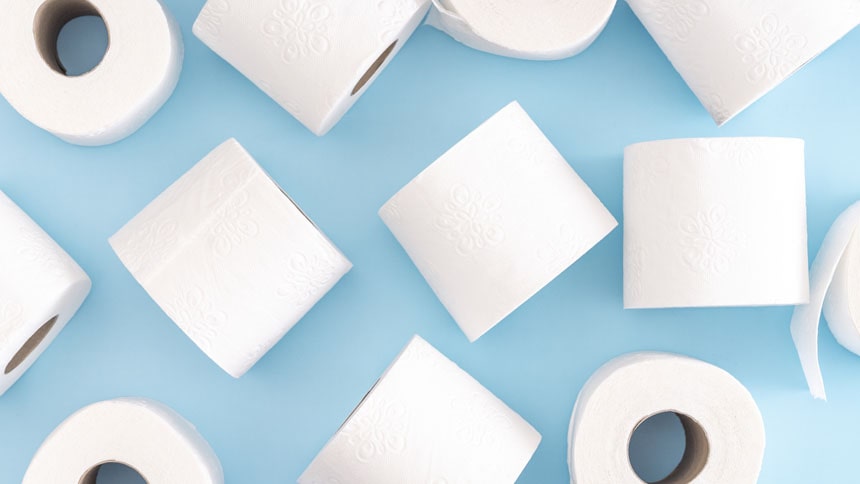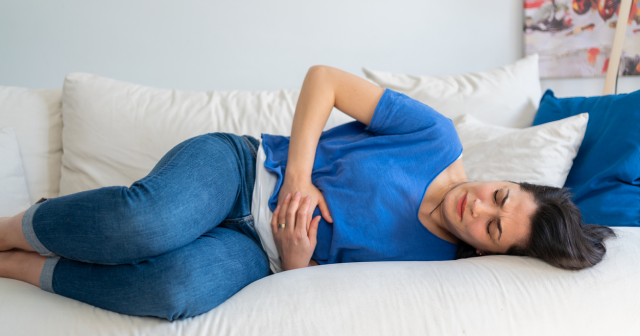Can menopause cause itchy skin?
Menopause symptoms are wide-ranging, and largely due to the hormonal changes taking place in the body at that time. Many people experience itchy skin-related symptoms during the menopause and perimenopause, such as itchy breasts, scalp, skin and genitals.
Itching can happen during the day or the night, and is often very upsetting. Here we explain what causes itchy skin (medically called pruritis) during the menopause, where you might experience itching and what you can do about it.
How does hormone imbalance cause itchy skin?
Itchy skin is a common sign of menopause and is caused by declining levels of oestrogen in the body. This leads to a decrease in collagen, which is a protein that makes your skin strong.
The lack of collagen in your body makes your skin thinner, drier and more likely to itch. Because the skin is drier and less elastic, you might become more sensitive to products that come into close contact with your skin, such as soaps and detergents. This can then cause your skin to become irritated and itchy.
Those going through the menopause might experience itching anywhere on their body, including the face, scalp and genitals.
It’s especially common for the vagina to feel itchy and dry during menopause, as the walls of the vagina become thinner due to the declining oestrogen levels. This is called vaginitis and symptoms include:
- a sore or itchy vagina
- vaginal dryness
- abnormal vaginal discharge
- light vaginal bleeding, or spots of blood
- pain when having sex or peeing
- sore, swollen or cracked skin around your vagina
If you have vaginitis, you might find that you need to pee more regularly and that you get frequent bladder infections.
Read about the best home treatments for vaginal itching.
Other causes of itchy skin
There are several other causes of itchy skin that may not be caused by the menopause. Other conditions can include:
- fungal infections
- hives
- longer term skin conditions
- parasitic conditions
When to see a doctor for itchy skin treatment
Itchy skin isn’t life-threatening but it can be irritating, and can occasionally be a symptom of something more serious. Book an appointment with your GP if your itchy skin:
is affecting your everyday life
keeps coming back or doesn’t get better with treatments you have at home
is all over your body – this might be a sign of something serious
is caused by a lump, rash or swelling that is new and you find worrying
See a doctor urgently if:
- your skin or eyes turn yellow
- you are losing weight
- you are bruising easily or have noticed any bleeding
- you have noticed any swollen glands
- you are peeing more often or very thirsty
- you are pregnant
- you’ve recently started a new medication
If you think you may have vaginitis, you might need to go to your GP or a sexual health clinic. This is important if:
- you've never had vaginitis symptoms before
- you’ve had vaginitis before, but the symptoms are different to usual, not getting better or are bothering you
- you have vaginal discharge that’s different to normal
- you have vaginitis symptoms after having sex with a new partner
- you have other symptoms like pain in your lower tummy, or you feel hot and shivery
It’s important that you don’t have sex until you’ve visited a GP or sexual health clinic, if you could be at risk of a sexual infection. It’s especially important to speak to a doctor if you have vaginal itching and / or bloody discharge.
How to treat itchy skin in menopause
There are lots of different ways to treat itchy skin. Some of these you can buy over the counter, while stronger treatments may need a prescription.
Moisturiser
Using moisturisers (emollients) is a great way to soften dry skin – which could be making your itching worse – and can help keep it soft and supple. Try to use unperfumed ones if you can, applying once a day, or a few times a day if your skin is very dry.
Soap and water can really dry out your skin as they wash away the skin’s natural oils. This means the best time to use moisturisers is after you wash, bathe or shower. It’s worth trying a few to find a moisturiser that’s right for you. There are creams, ointments and bath or shower additives available, which you can use instead of soap.
Most moisturisers are available over the counter, but speak to your doctor or a pharmacist if your symptoms aren’t improving.

Vitamin C
Vitamin C is essential for healthy skin, as it helps to create collagen in the skin. Increasing the amount of vitamin C in your diet may help repair any skin damage – and help with dry, itchy skin.
Vitamin C is found in lots of fruits and vegetables – it’s not stored in your body, so you need to consume some every day. You might want to consider supplements if you don’t get enough through your diet. Ask your pharmacist for more details.
Over-the-counter creams
There are lots of different over-the-counter creams or lotions you can buy from your pharmacy. Ones that include camphor, menthol, capsaicin or pramoxine can be useful.
Corticosteroids
If you have been diagnosed with a skin condition like eczema or psoriasis, your doctor may recommend a steroid cream. Sometimes these are used in combination with another cream, like an anti-fungal, if you have a fungal infection like ringworm that is causing your itchy skin. Steroids should not be used for a long time as they can have side effects such as thinning of the skin and bruising. They can also make some conditions worse, so it’s best to speak to a doctor if you’re not sure.
Antihistamines
Antihistamines might help to relieve your itching - these can be bought at pharmacies or prescribed by your doctor, depending on the type.
Antihistamines come in lots of different forms: tablets, liquids, sprays, creams, lotions, gels, syrups, eyedrops and nasal sprays. There’s a lot to choose from, so it might be helpful to speak to your pharmacist before buying any. You might need to try a few types before finding one that works for you.
It’s important to think about whether you want an antihistamine that’s non-drowsy, or one that makes you feel sleepy. Non-drowsy antihistamines – such as loratadine, cetirizine and fexofenadine – are less likely to make you feel sleepy and are better for daytime itching.
If you get itchy skin during the night, an antihistamine that makes you feel sleepy might be preferable, as this will help stop your scratching overnight. Examples of antihistamines that make you feel drowsy are hydroxyzine, promethazine and chlorphenamine.
Check the leaflet that comes with the antihistamine for a list of potential side effects. Speak to your doctor or pharmacist if you take any other medication, in case this could stop either from working properly or increase the risk of side effects.
Hormone replacement therapy (HRT)
HRT is an effective treatment for menopause symptoms such as itchy skin. It works by replacing hormones that start to decrease as you get closer to menopause. Replacing the oestrogen that you lose during menopause can help to strengthen your skin’s collagen, and improve its hydration. This can result in brighter, less itchy skin that feels and looks better.
There are lots of benefits to HRT, as it helps to relieve a lot of menopause symptoms and can also help with other problems that can arise after menopause, like weak or brittle bones. However, it carries some risks and side effects, some of which will depend on the kind of HRT you take. It’s best to speak to your doctor to discuss the best type for you, and find out what the individual risks are for you. Read more about the side effects of HRT.
Not scratching
This might sound obvious, but the number one way to avoid itchy skin and skin damage is not to scratch. Try to keep your nails short, as this will limit any damage done by scratching, and wear cotton clothes, as they won’t irritate your skin as much. Wearing gloves at night can be useful if you get night-time itching. If you have an irresistible urge to scratch, try to tap or drum on your skin instead, as this will cause much less damage.
Change your shower habits
Some people find having a cool or lukewarm shower or bath helpful. This will cool down your skin and help prevent dry skin, which could lead to an itch. Try to avoid using bubble baths, soaps and detergents, as these could cause you to itch and dry out your skin. Those with eczema are often advised to bathe or shower less frequently, as soap can dry out skin. Instead, try to use unperfumed varieties or avoid soap altogether and use water alone, or an emollient instead of soap. You might also find adding sodium bicarbonate or oatmeal to your bath water helps, and to pat your skin dry with a towel rather than rubbing.
Changing your diet
A healthy balanced diet is essential for healthy skin, as is drinking plenty of water. Supplements can also be helpful, such as those containing vitamins C and E.
It can also be useful to limit or cut out foods and drinks that are known as vasodilators, which can widen the blood vessels in your skin. These include caffeine, alcohol, hot water and spices.

Avoiding stress
Stress can be a factor in itchy skin, as stress hormones can affect the flow of blood to your skin. This could cause skin irritation or rash.
Read about the effects of stress on the body.
Outlook for itchy skin in menopause
Having itchy skin in menopause isn’t life-threatening, but it can be very irritating and make you self-conscious if your skin becomes rough or a rash forms. However, there are many ways to relieve itchy skin, either from treatments you can buy over the counter or prescribed from your doctor.
Itchy skin isn’t usually a sign of anything serious and, depending on the cause, should clear up within a few weeks with treatment.
Your health questions answered
Why do I itch at night during menopause?
Answered by: Healthily's medical teamThere could be many reasons for why your skin becomes itchy at night-time. It could be because you’ve had a hot bath or shower before bedtime, or used a soap or bubble bath that has irritated your skin. You might also have eaten or drunk something that has caused vasodilation (the widening of blood vessels), such as alcohol, spicy food or a hot drink.
Occasionally, itchy skin may be a sign of an underlying condition like eczema, which may come and go over time in flare-ups.
It could also be that something else is preventing you from sleeping, and you’re noticing the itching because you’re being kept awake. Menopause can cause trouble sleeping (insomnia) as well as problems with mood and anxiety, and hot flushes that keep you up at night too.
Key takeaways
- itchy skin can be a symptom of the menopause and can occur anywhere on your body
- it’s usually treatable with home remedies, over-the-counter treatments or prescribed medicines such as HRT
- it can be irritating, but should go away within a few weeks with treatment
- lifestyle changes such diet and reducing stress can help prevent itchy skin, or stop it getting worse
- see a doctor if your itchy skin is affecting your day-to-day life or keeps coming back







